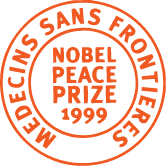DNDi puts patients – not profits – at the heart of R&D
Millions of people around the world die every year from lack of treatment. Yet only a fraction of the world’s pharmaceutical research and development focuses on diseases affecting poor and vulnerable communities.
The Drugs for Neglected Diseases initiative discovers, develops, and delivers treatments for neglected communities around the world suffering from diseases for which there are few – if any – effective treatments.
FEATURED
Beni: Surviving Sleeping Sickness
Meet Beni, a young boy from the Democratic Republic of Congo who survived sleeping sickness. His life changed after a tsetse fly bite transmitted this neglected disease, which attacks the central nervous system and can be fatal without timely treatment. Thanks to timely diagnosis and innovative all-oral treatments developed through research with our partners, Beni was able to recover.
Our goal: 25 patient-friendly treatments by 2028
We work with more than 200 partners worldwide to deliver treatments that are affordable and specifically designed for the people and places in most need.
Be part of making medical history
Join a team of scientists and healthcare workers working to speed up research to deliver life-saving treatments for the most neglected
Born on the frontlines of medical action
When the medical humanitarian organization Doctors Without Borders / Médecins Sans Frontières (MSF) received the Nobel Peace Prize in 1999, they dedicated a portion of the award to exploring a new, alternative, not-for-profit model for developing drugs for neglected patients.
In 2003, DNDi was founded by MSF, the World Health Organization, Institut Pasteur, the Indian Council of Medical Research, the Oswaldo Cruz Foundation in Brazil, the Kenya Medical Research Institute, and the Malaysian Ministry of Health.
Today, we collaborate with pharmaceutical companies, ministries of health, academia, civil society, and patient groups to innovate for neglected populations. Working at every stage of the drug development process, we pioneer open-source drug discovery to find new compounds for neglected diseases, conduct clinical trials in the world’s most remote areas, and ensure equitable access to the treatments we develop.
